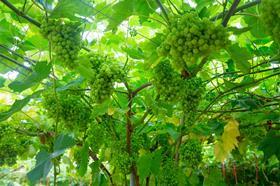
The South African Table Grape Industry (SATI) has said the country's new harvest is expected to end up somewhere between 65m and 69.8m 4.5 kg-equivalent cartons.
“This is an expected return to normal industry volumes and reflects a marginal growth in hectares planted over the last six years,” the industry body stated.
The Northern Province, which contains the earliest South African regions, is according to SATI expected to start a week later than usual in week 45. The Orange River is also likely to start about five days later due to cooler spring weather.
“It is still too early to predict exactly when the remaining three South African production regions, which are located in the Western Cape Province, will start harvesting,' SATI noted.
Organisation chairman Fanie Naudé said the focus would be on providing quality table grapes from South Africa that are an essential part of healthy diets.
“Producers are ready to meet the increasing worldwide demand for healthy fruit, especially during the ongoing Coronavirus pandemic,' Naude confirmed.
The crop estimate is supported by the latest vine census, which reflects the South African table grape industry’s response to market preferences through the investment in new varieties.
“This resulted in accelerated replacement of older generation varieties with new generation varieties,' the body continued. 'A larger percentage of young vines across most of the production regions are currently not bearing or are not in full production yet.”
Crop estimates are done in cooperation with growers and industry experts representing all production regions. “SATI will use this structure to be more responsive to in-season developments and deviations.”
Expectations for the first half of the South African season up to around week 4 are that volumes will not exceed those of previous years.
“This is due to the extended colder conditions in the Orange River region with a resultant slightly later start than is expected,' SATI noted. 'A return to a normal crop is expected for the three Western Cape based regions, especially in the late Hex River region where unseasonal rain during the last season caused substantial losses.”
SATI pointed out that 60 per cent of the total crop is delivered from the mid-to-late Berg and Hex River regions, and further updates from the later regions will be published in a second crop estimate towards the end of the year.
The Olifants River Region received plenty of winter rains with a full recovery expected for this region following some difficult years.
“The realisation of this crop estimate depends on a few critical factors with the weather conditions just before and during harvest the most important,” SATI added.



